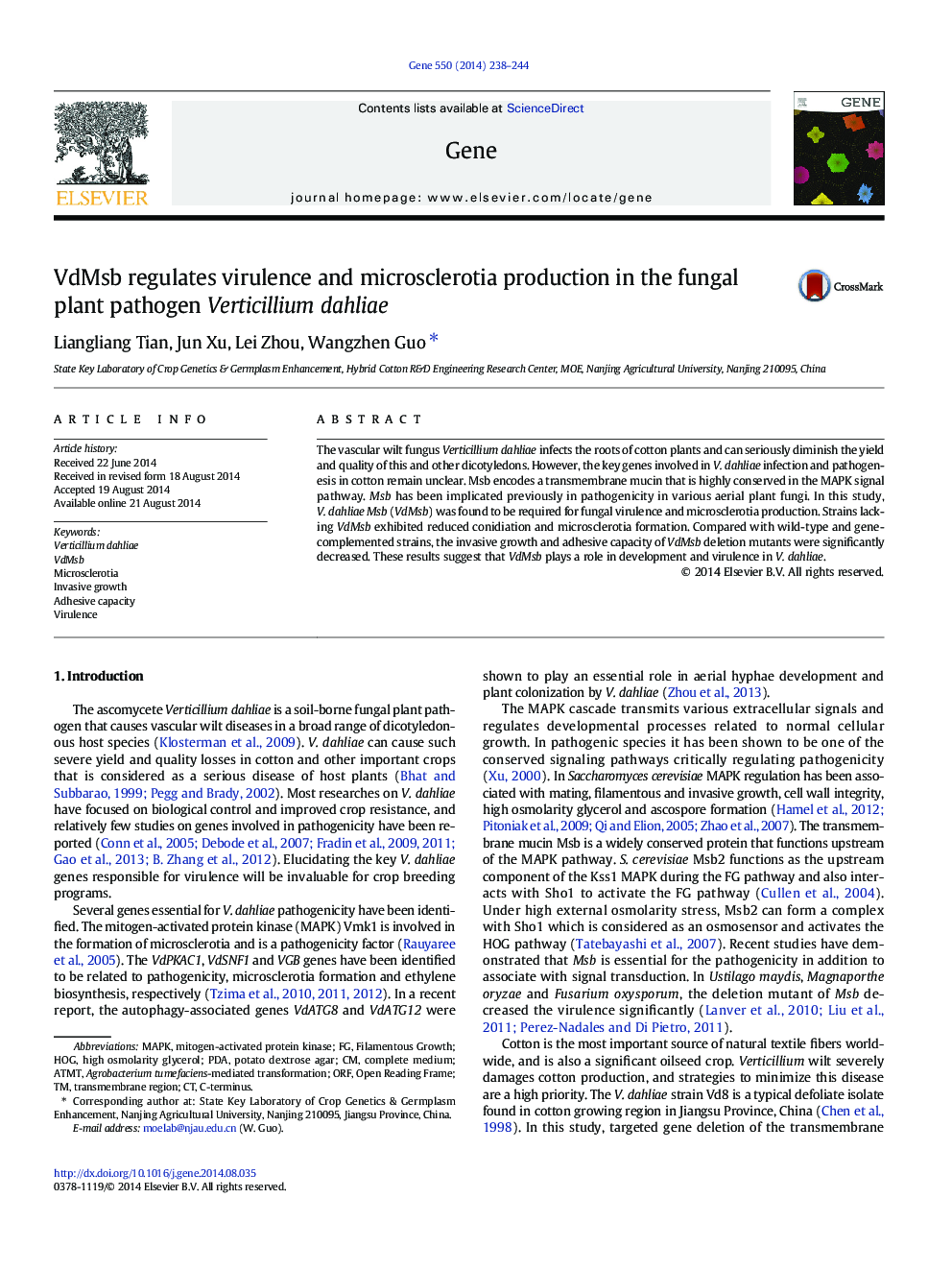| کد مقاله | کد نشریه | سال انتشار | مقاله انگلیسی | نسخه تمام متن |
|---|---|---|---|---|
| 2816090 | 1569845 | 2014 | 7 صفحه PDF | دانلود رایگان |

• The fungal pathogen Verticillium dahliae reduces cotton yield and quality.
• The transmembrane mucin VdMsb functions upstream of the MAPK signal pathway.
• Deletion of VdMsb reduced conidiation and microsclerotia formation.
• Deletion of VdMsb also decreased the invasive growth and host adhesion capacity.
• VdMsb plays a role in development and virulence in V. dahliae.
The vascular wilt fungus Verticillium dahliae infects the roots of cotton plants and can seriously diminish the yield and quality of this and other dicotyledons. However, the key genes involved in V. dahliae infection and pathogenesis in cotton remain unclear. Msb encodes a transmembrane mucin that is highly conserved in the MAPK signal pathway. Msb has been implicated previously in pathogenicity in various aerial plant fungi. In this study, V. dahliae Msb (VdMsb) was found to be required for fungal virulence and microsclerotia production. Strains lacking VdMsb exhibited reduced conidiation and microsclerotia formation. Compared with wild-type and gene-complemented strains, the invasive growth and adhesive capacity of VdMsb deletion mutants were significantly decreased. These results suggest that VdMsb plays a role in development and virulence in V. dahliae.
Journal: Gene - Volume 550, Issue 2, 25 October 2014, Pages 238–244